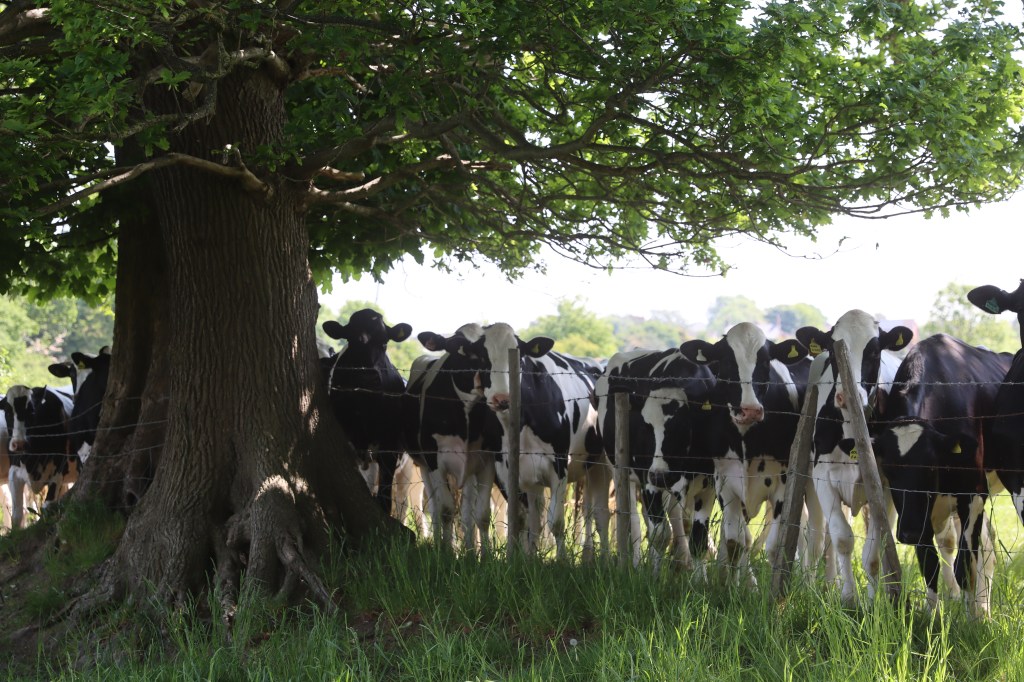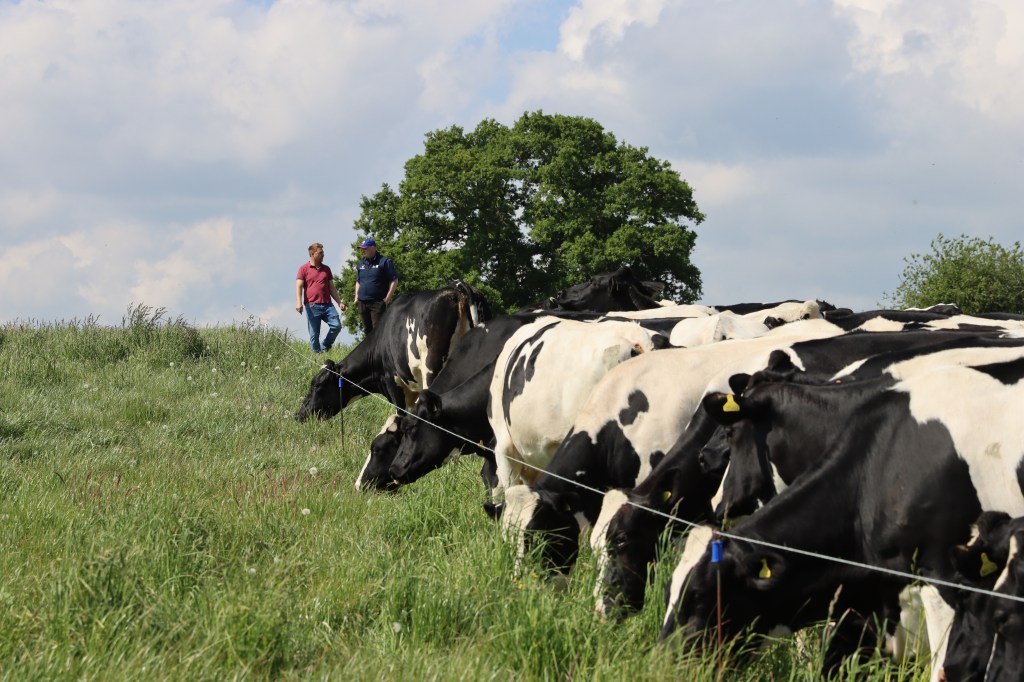Located just outside Mold in North Wales, dairy farmer Tom Blecher has been working with Genus ABS for over a decade to build a breeding programme that’s aligned with the long-term needs of his business.
With a clear focus on genetic progress, milk contract targets, and overall efficiency, Tom has used tools such as genomic testing, a custom index, and a forward thinking approach to bull selection to reshape the performance of his herd for years to come.
Breeding for goals, not just indexes
Tom’s herd is now among the top 1% in the UK for parent average £PLI, and his genomic-tested heifers have placed the farm as the 15th best milk-recorded herd nationally, but that wasn’t the goal in itself.
The main aim has always been to breed a cow that suits his specific system and contract, rather than relying solely on standard industry indexes such as £PLI. That’s where a custom index, developed with support from his Genus ABS representative, Richard Bostock, has made all the difference.
“We’ve not been scared of using bulls a little lower on £PLI if they’re right for what we need.”
The index focuses on traits that matter most to his milk buyer, such as fat and protein production as well as the addition of fertility, and feed efficiency. Selecting bulls with the right profile, rather than just the highest £PLI, has allowed Tom to make decisions that move his business forward in a way that’s aligned with his own priorities.
One such decision involved using a bull which Tom previously would have discarded as a prospect based on his £PLI. While that bull didn’t rank the highest against national indexes, his daughters have since proven to be excellent performers in the herd, particularly in second lactation.

Genetic progress that works on the ground
The results of this tailored approach are clear. Tom reports real gains in genetic consistency and component performance. Because he’s rearing all of his own replacements, those genetics are now across the herd, and the improvement is visible year-on-year.
The breeding strategy includes the use of sexed semen on the best females and beef semen elsewhere, helping Tom make the most of each pregnancy and add value through the beef market, which continues to remain strong across the UK.
Calves stay on-farm until 56 days, in line with UK calf care and welfare regulations, and are collected by Gamechanger’s beef scheme to help maximise returns.
Working with a partner who understands the system
Having started working with Genus ABS over 10 years ago, Tom benefits from a close working relationship with a team who understands both the goals of the farm and the genetics available. That relationship has helped ensure the bulls selected match the system, not just the stats.
With access to a large and diverse bull portfolio, Tom can look beyond the top-line indexes and make breeding decisions that suit his specific needs, whether that’s improving solids, boosting fertility, or maintaining a smaller, more efficient cow.
Genetics as a route to lower emissions
Looking ahead, Tom sees labour availability and environmental responsibility as key pressures on his business. He believes genetics can play an important role in addressing both of these.
By breeding cows that are more efficient, require less feed, and produce the same or higher outputs, Tom is confident that he can reduce inputs without sacrificing performance.
Watch the video below to find out more about Tom’s breeding strategy.
Ready to tailor your breeding strategy?
Whether you’re looking to improve component yields or build a more efficient herd, a Genus ABS partnership could help you get there faster.
Reach out to your local Genus ABS representative today to start building a strategy that fits your farm.






